September 2023
Brethren All,
This is a month that we as Americans celebrate the Labor we put forth to make a living. We are told not to let Masonry interfere with our Labor. Making the family safe and serving them is a Masons desire. This month also leads us toward fall and the turning of leaves further north. God creates beautiful scenes.
One thing we can do in September is to attend lodge and join in some of the activities, that we as Masons do to help the community. What happens when we take a solemn obligation on the Holy Bible and blatantly fail what we swore to do? We have lied before God and man. What excuse do you use to not do what is ask of you?
There is coming a time that Masonry will go the route of the Church. It is going down and will eventually be no more. What will our worldly system be like then?
Do you know of people your lodge has helped? So, don’t you want to be a part of that work? Remember we are here for the fraternity not for our individual accolades. Learn one place of the work and help out by doing that place.
May God richly bless all my brethren. Let God be Praised!
Right Worshipful and Reverend
Ricky Kilgore, Grand Chaplain
Gold Mine Degree – September 16, 2023
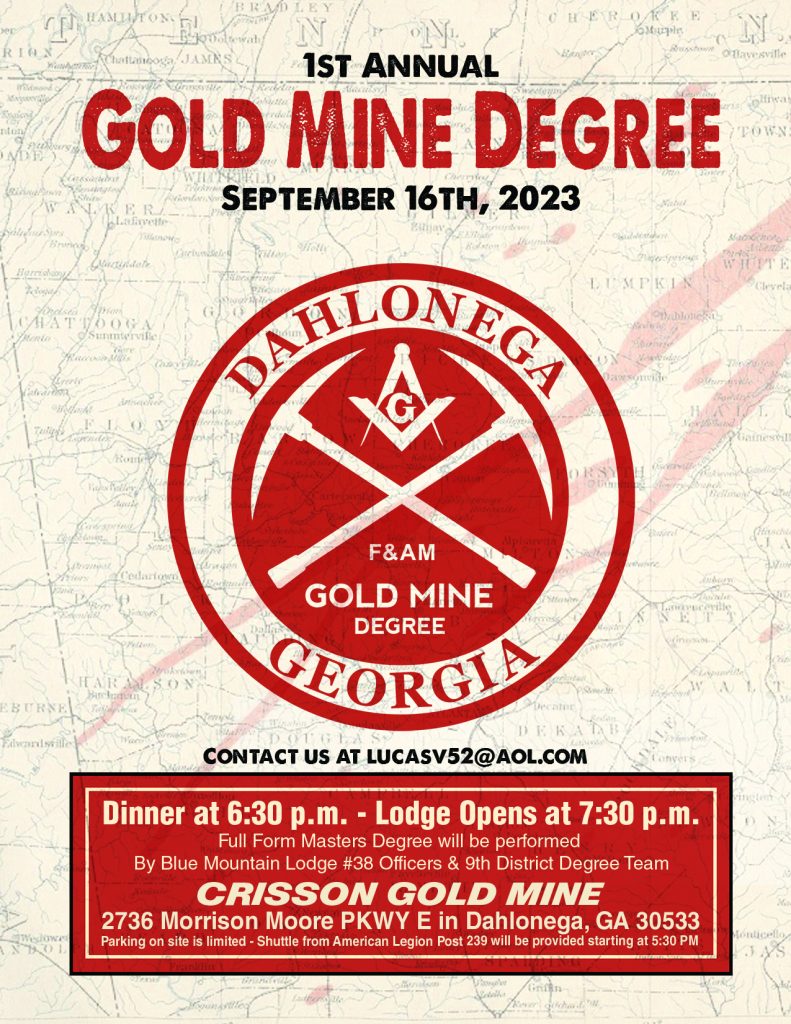
4th of July 2023
Brethren All,
Today as we enjoy the freedom of Independence Day, it becomes more evident that our nation does not understand the price of this freedom. The wicked enjoy more freedom than ever. This nation allows more freedom to hate groups than it does to regular law abiding peoples.
The charter that was signed when this nation became free, as we know, was signed by more Masons than any other pure people. It is with great pleasure that I sit and think about this great act. I am proud that the men that signed this charter did it with great pride themselves.
When we look at our nation’s capital and the beautiful Glorious flag, we should salute with pride what all this means. As we look for strength in this nation is seems to be lacking. Let us all stand as Masons, stand with pride in the nation we fought for and loved dearly.
May GOD richly bless America in 2023 and draw his people back to him. In name of our Great Architect of the Universe may grow stronger.
Right Worshipful and Reverend
Ricky Kilgore, Grand Chaplain
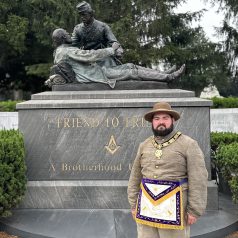
Gettysburg Visit
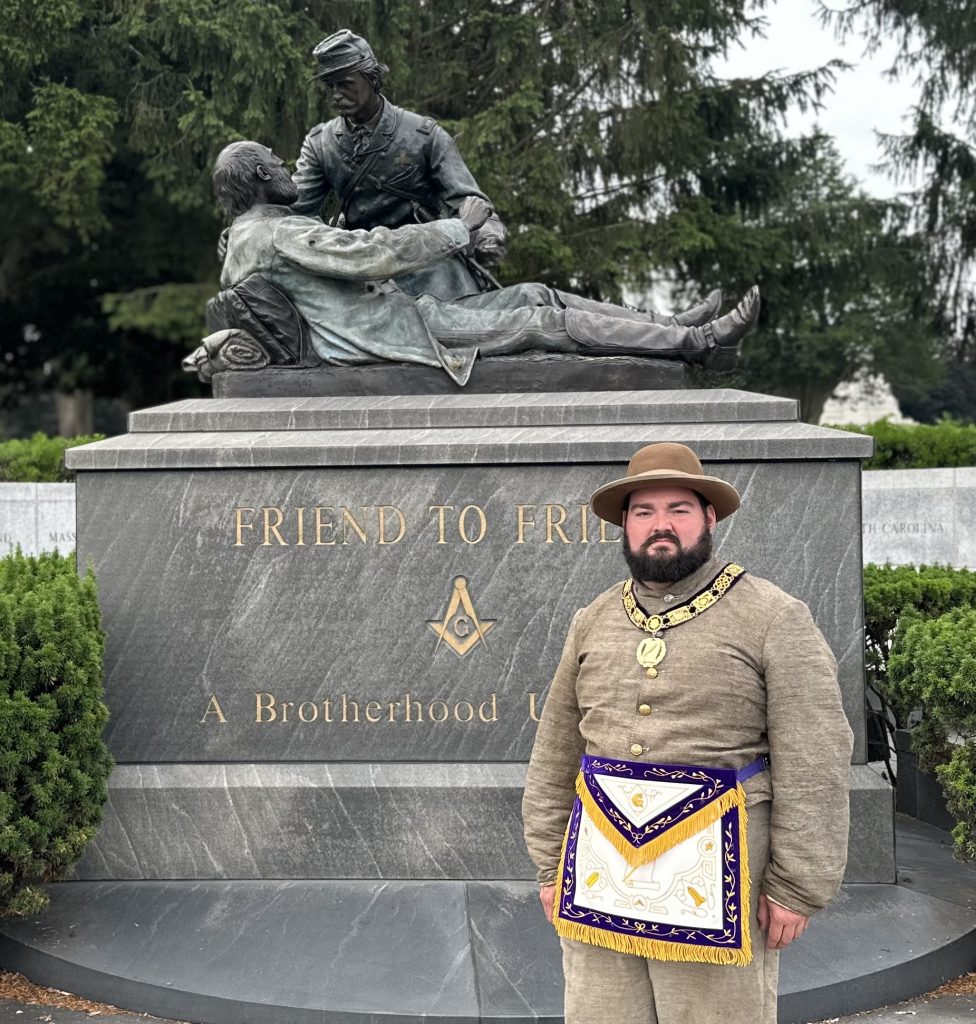
I had the pleasure of paying my respects at the Gettysburg National Military Park and Gettysburg National Cemetery this fine morning.
Amid the 1000’s of monuments in Gettysburg, the one that I believe touched my heart the most, the one that I’ve long sought visiting, was the “Friend To Friend, A Brotherhood United” monument.
“The monument depicts Union Captain Henry Bingham, a Mason and staff assistant to General Hancock, himself wounded, rendering aid to the fallen Confederate General. Armistead is shown handing his watch and personal effects to be taken to his friend, Union General Hancock Union General Winfield Scott Hancock. “
What is most meaningful, most striking about this monument is what it represents as a whole. Freemasonry doesn’t “instill” or “create” a bond. It is not something that can be pulled off like our aprons or rings. Freemasonry exists on our good days, and the bad days. It exists in peace, and at war. What this monument shows to the world is one man handing his last effects, the contents of his pockets to another.
What it means to Masons is that no matter what, good or bad, peace or war, there exists between them a bond that is inseparable. A bond of brotherhood, a bond of protecting a brothers life, a bond of protecting a brothers family, and most of all, an unwavering devotion and commitment to never breaking your word or promise to another brother.
It was my distinct honor and privilege to visit this solemn place of honor.
Zachary C. Grizzard
Right Worshipful Grand Historian
The Most Worshipful Grand Lodge of F & A M of Alabama
Service Awards
MW Brother Rusty Beck, Grand Master, RW Brother Mike Boyles, Deputy Grand Master, MW Brother David Tucker, Past Grand Master, and RW Brother Max Carey, Grand Marshal were privileged in presenting two of our Brethren service awards for their many years of service to our Fraternity: Brother John Willis of Somerville Lodge No. 721 and Rising Sun Lodge No. 29 received his 60 year pin, and Brother Mike Jones of Rising Sun Lodge No. 29 received his 70 year pin. Congratulations to you both!
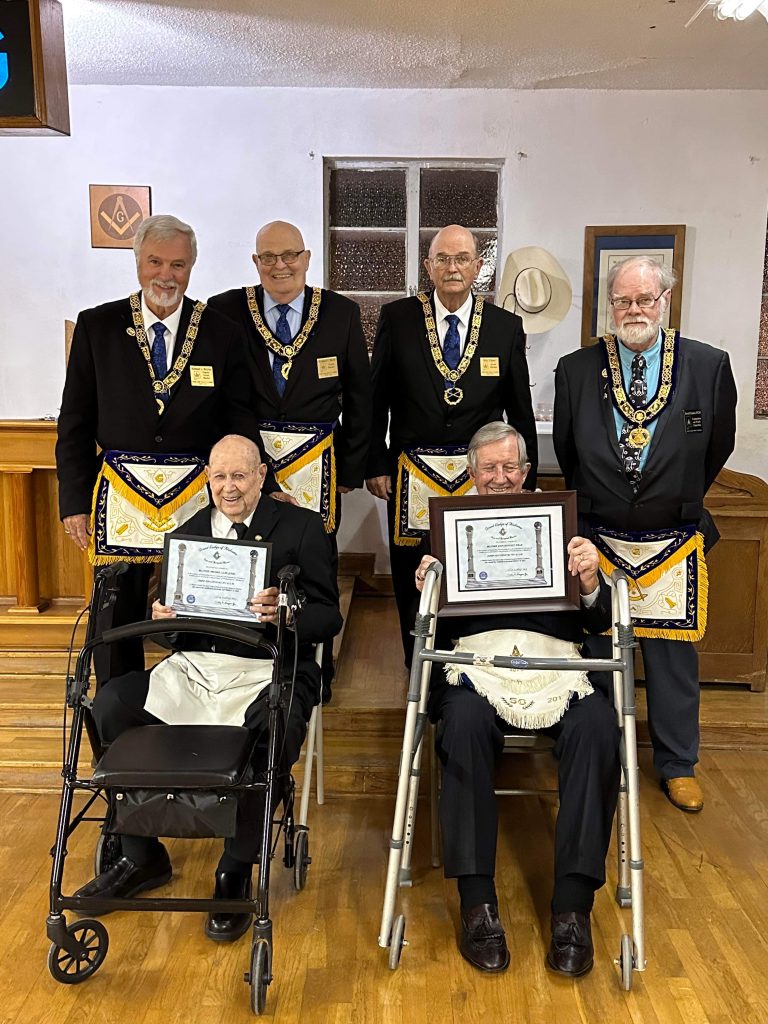
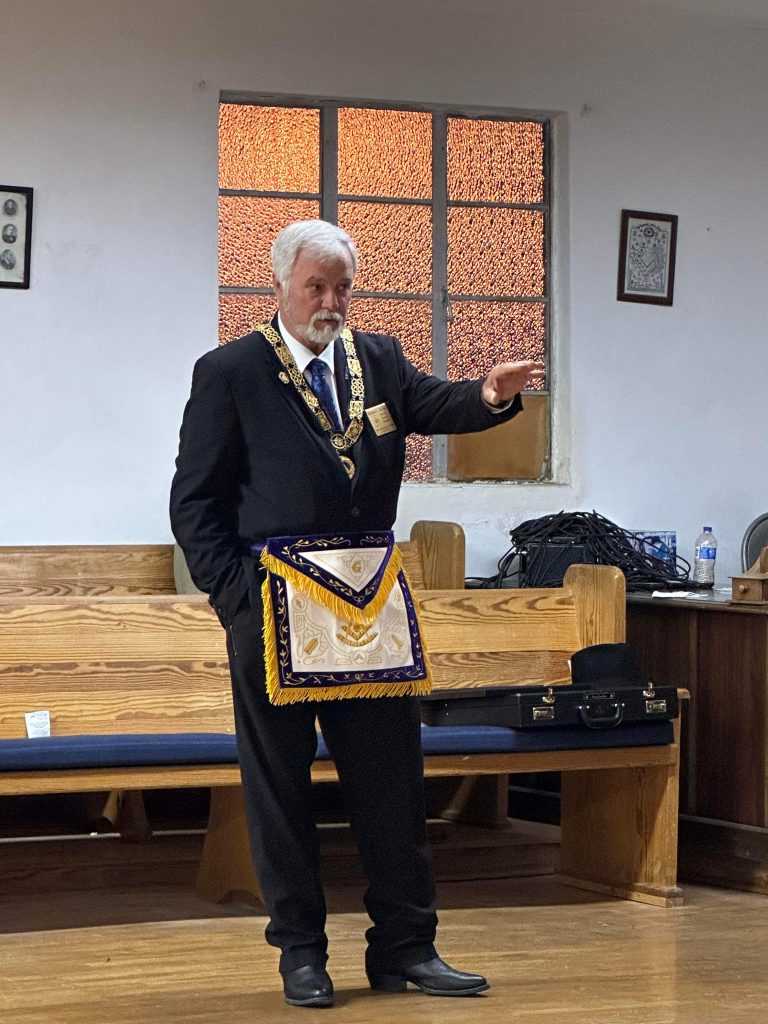
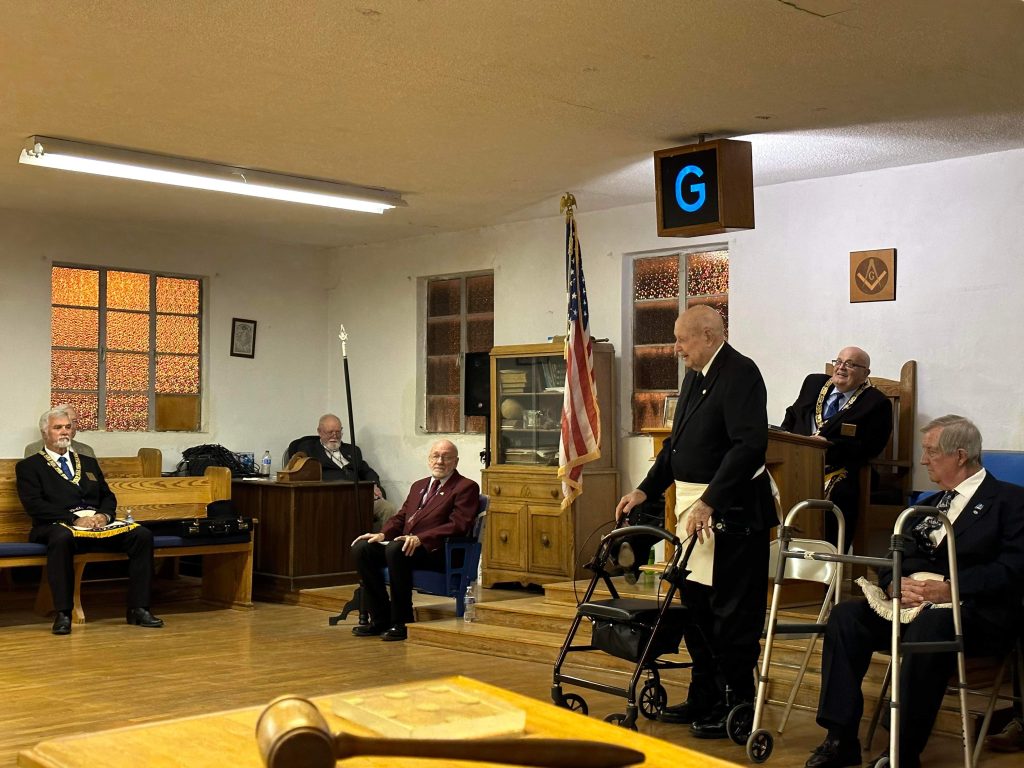
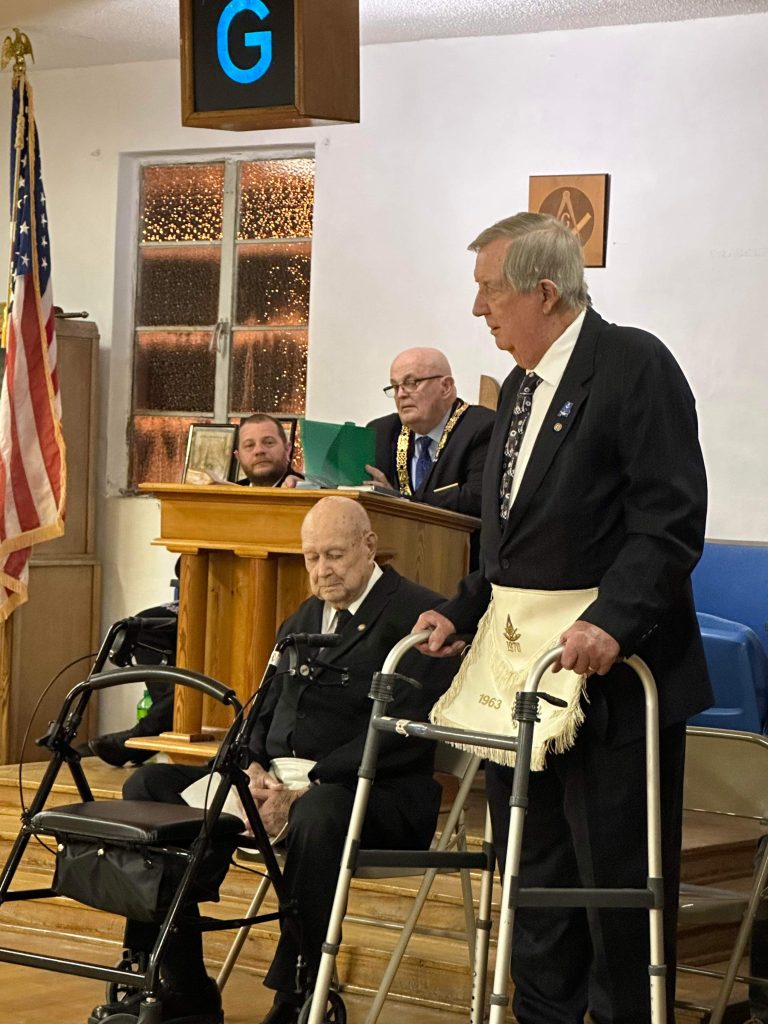
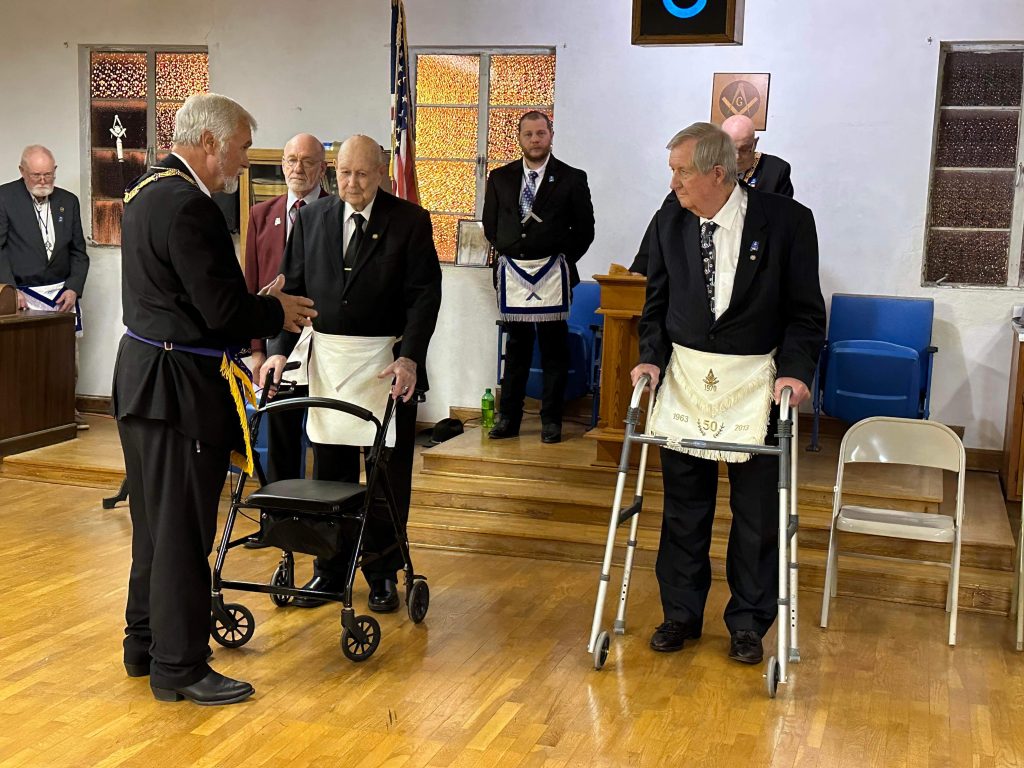
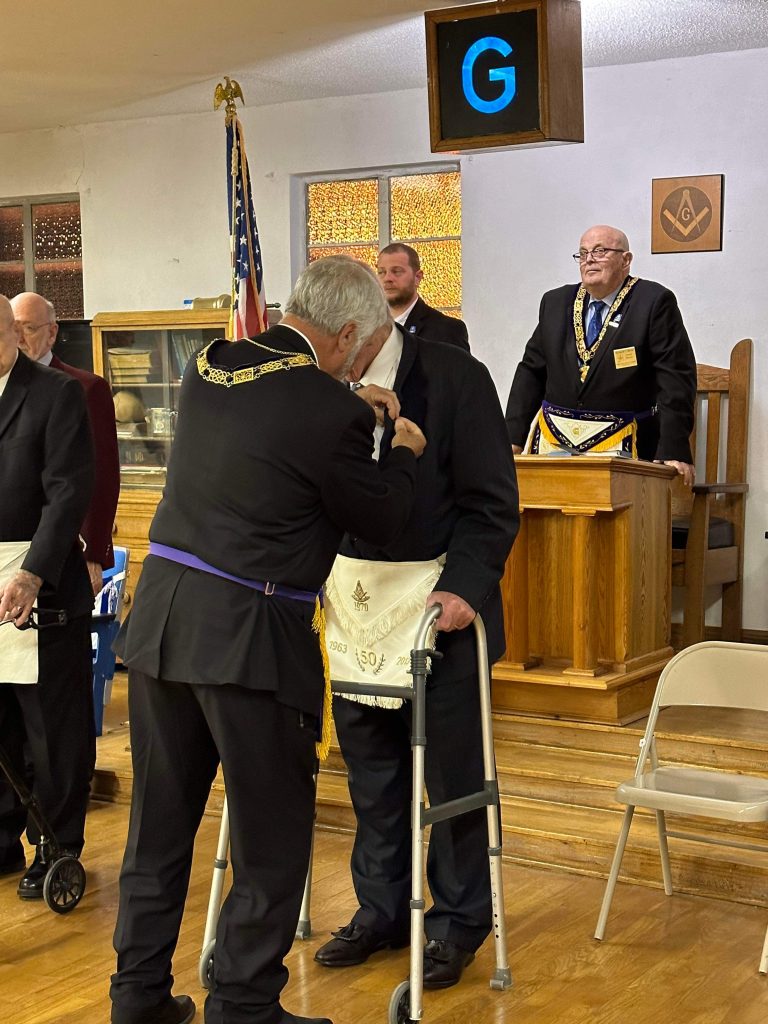
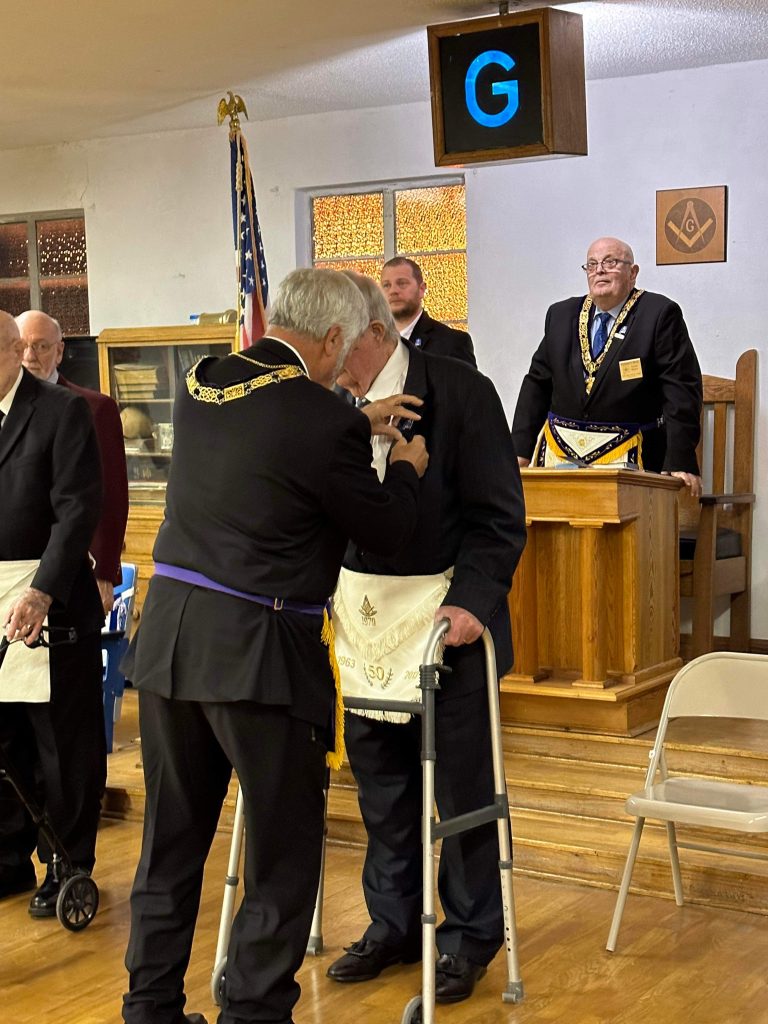
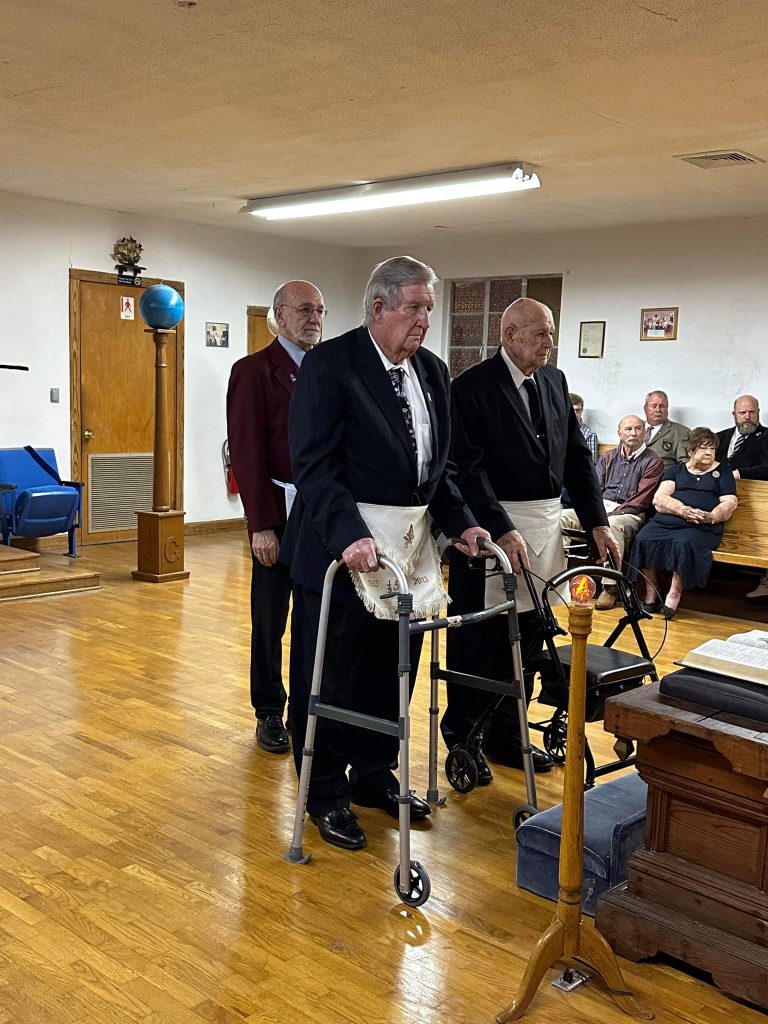
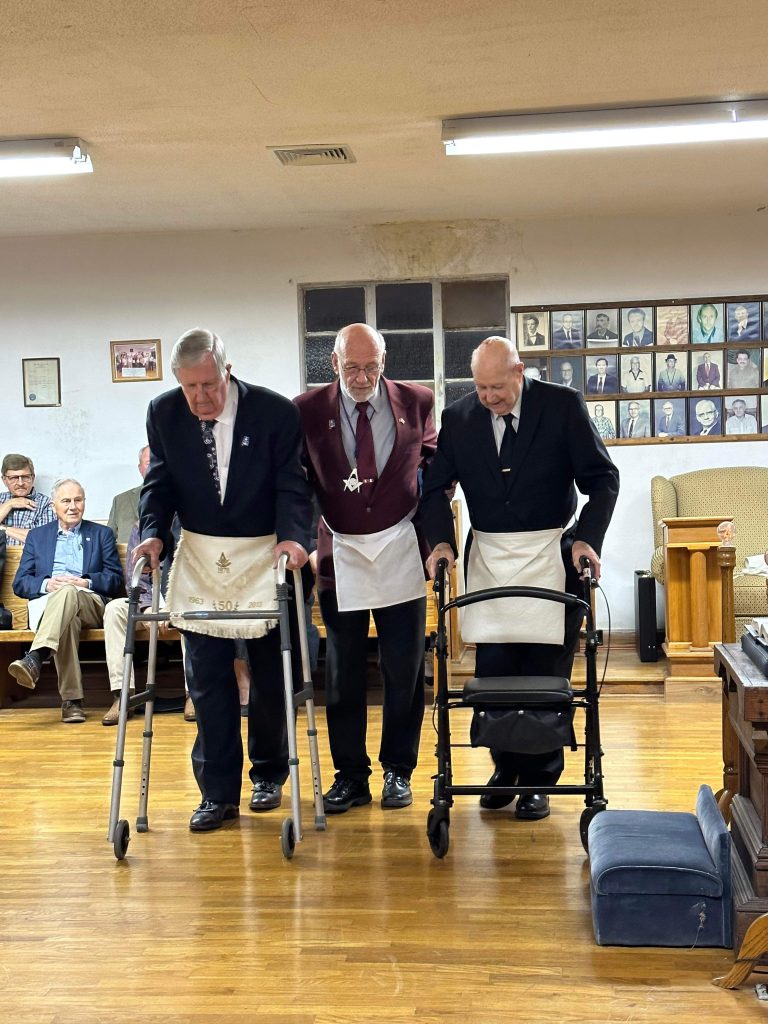
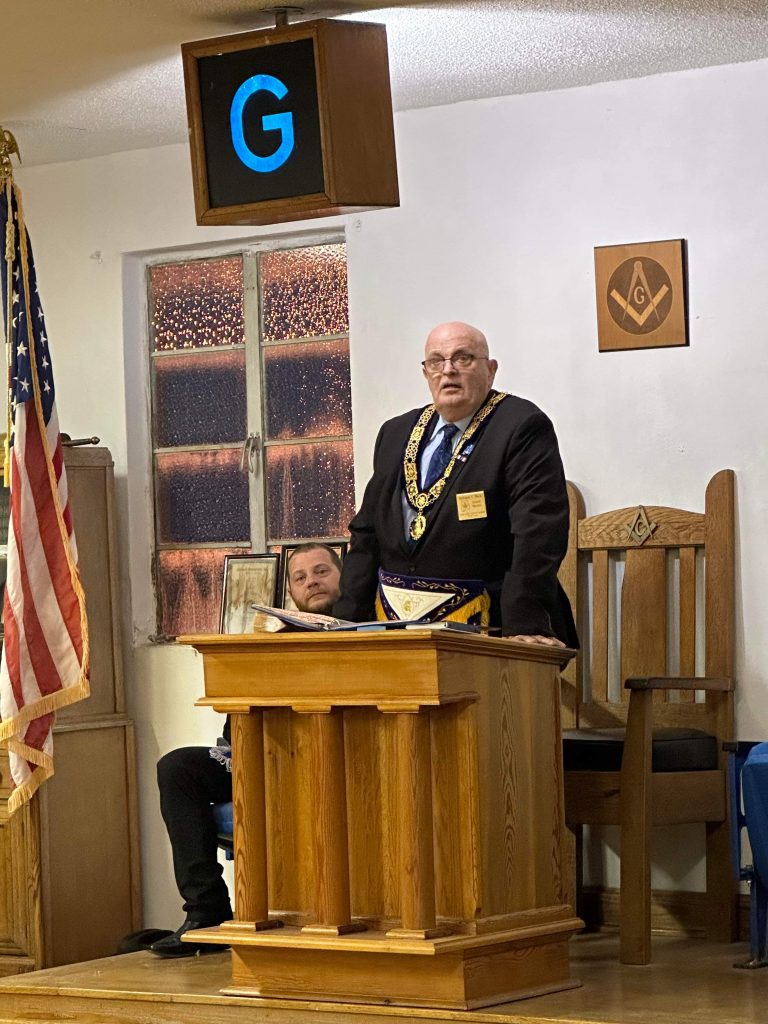
Scholarship Presentations
Our RW Deputy Grand Master, Brother Mike Boyles, presenting scholarships at Florence Lodge. Congratulations to all the recipients!
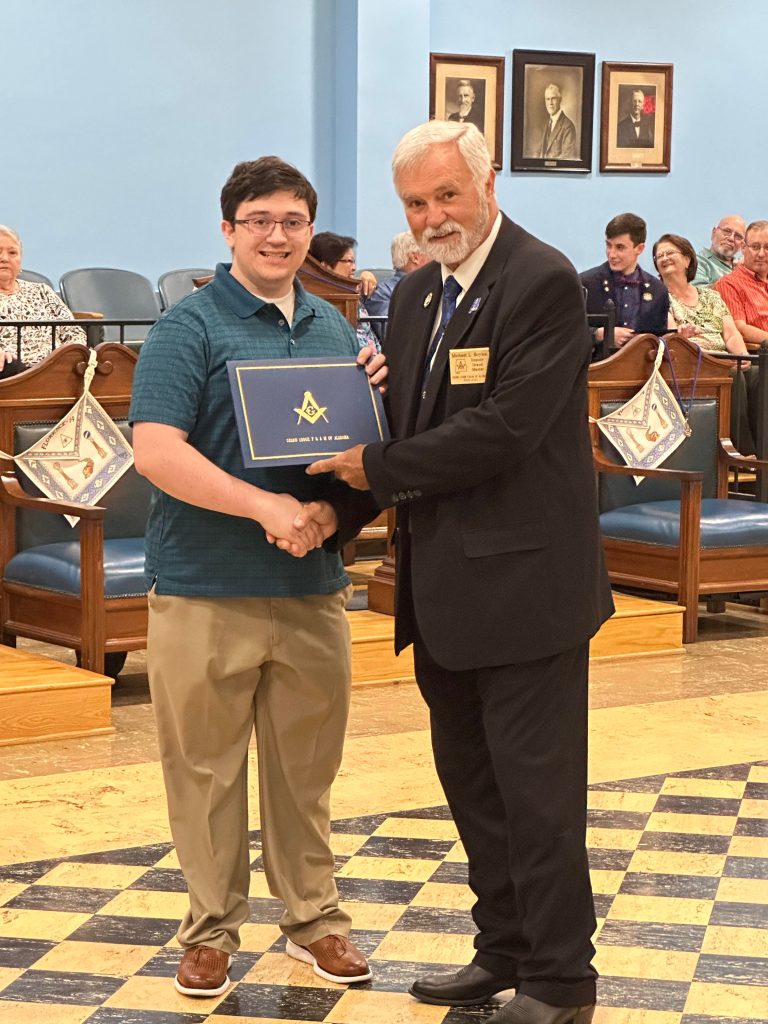
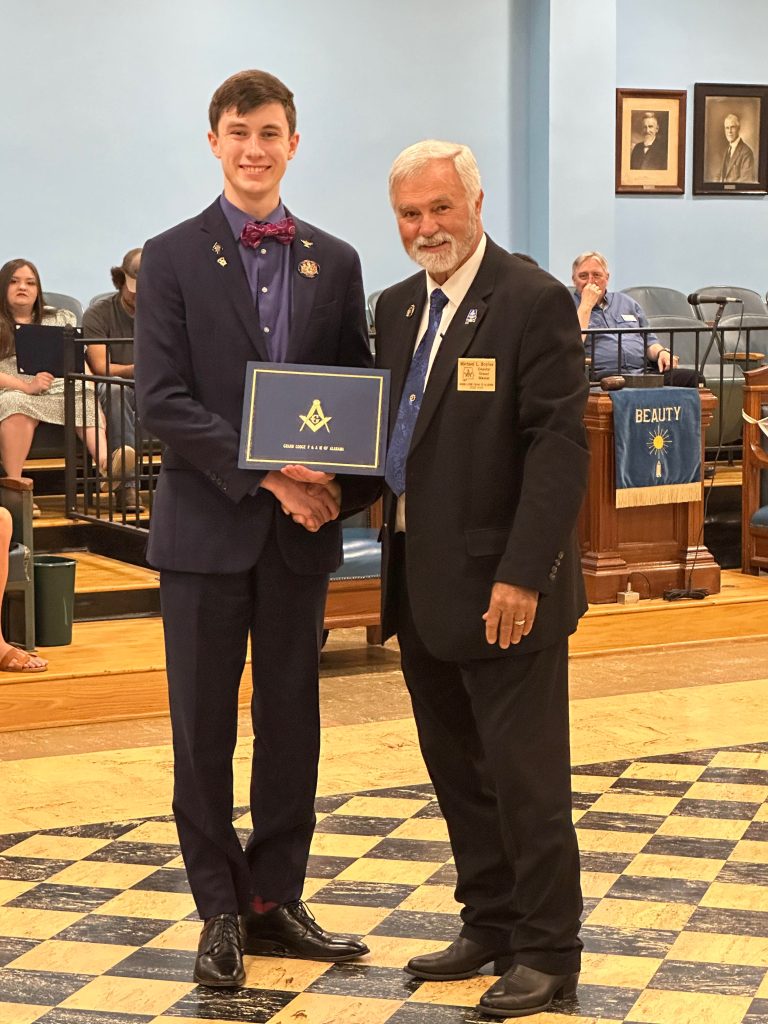
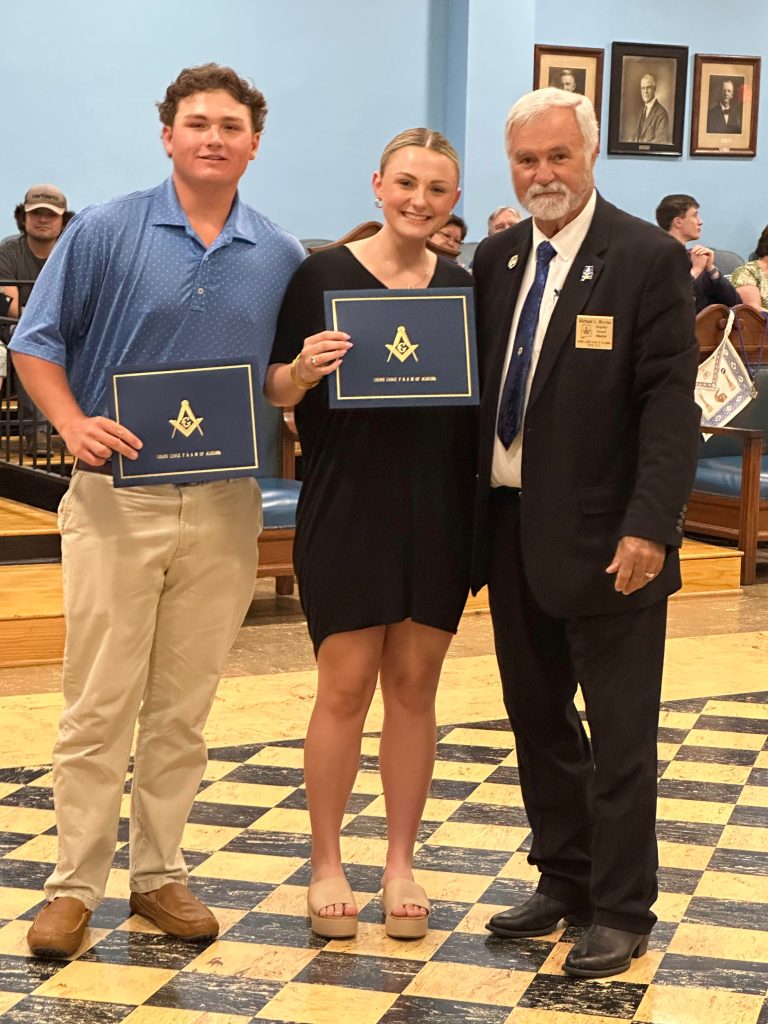
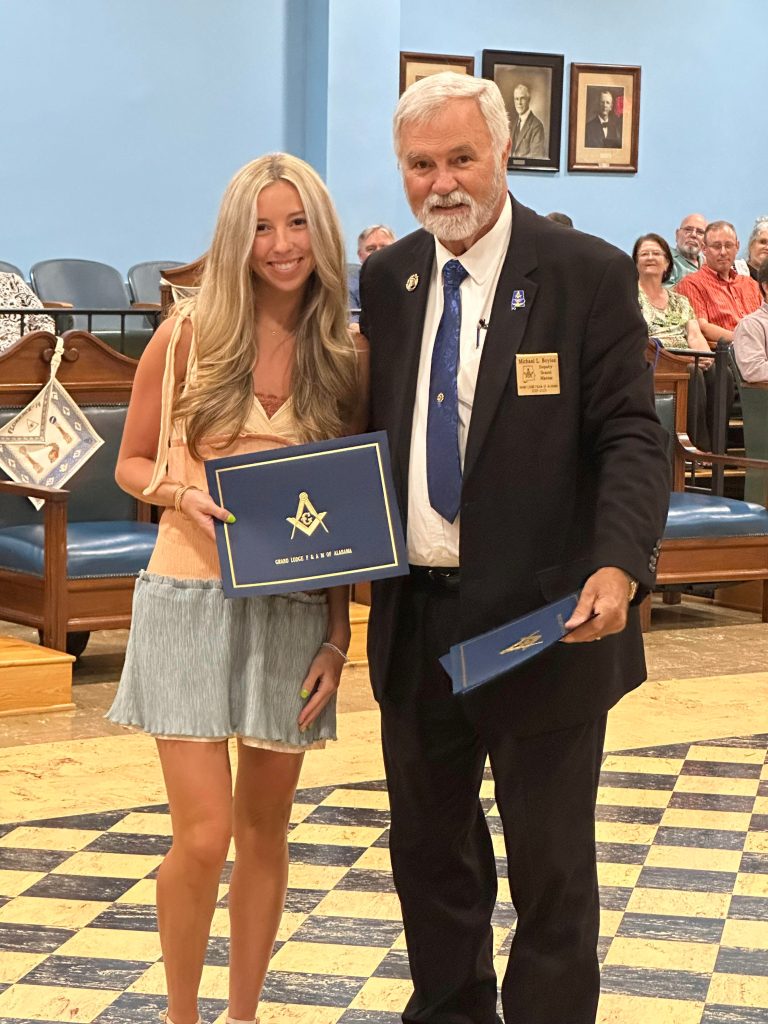
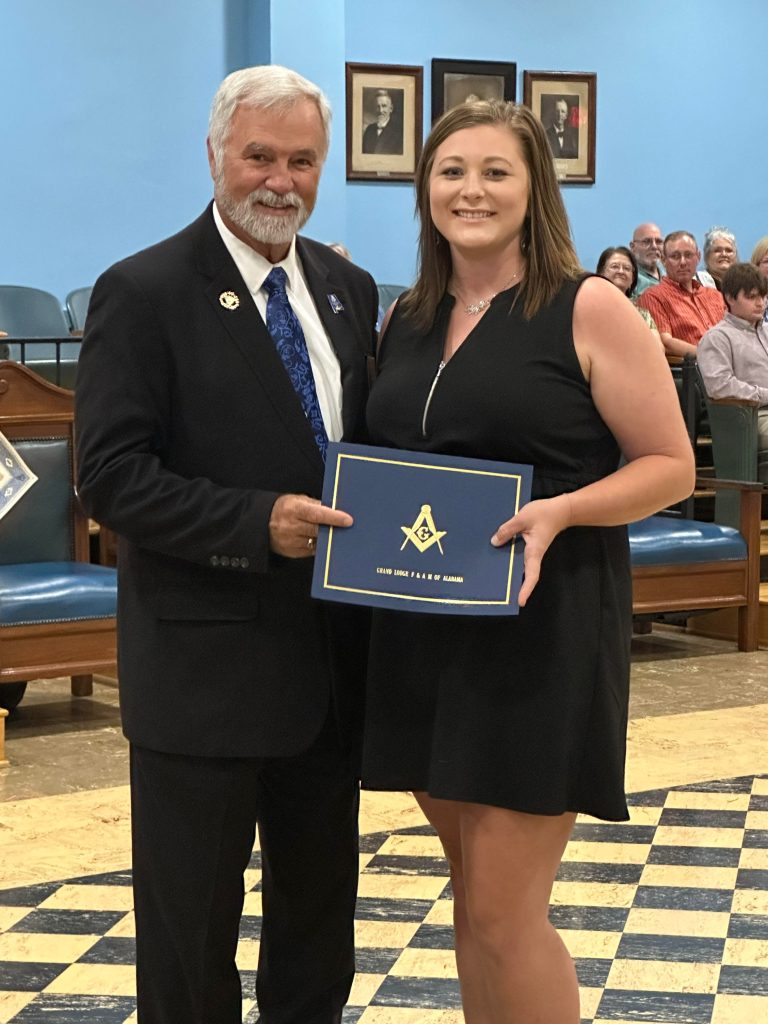
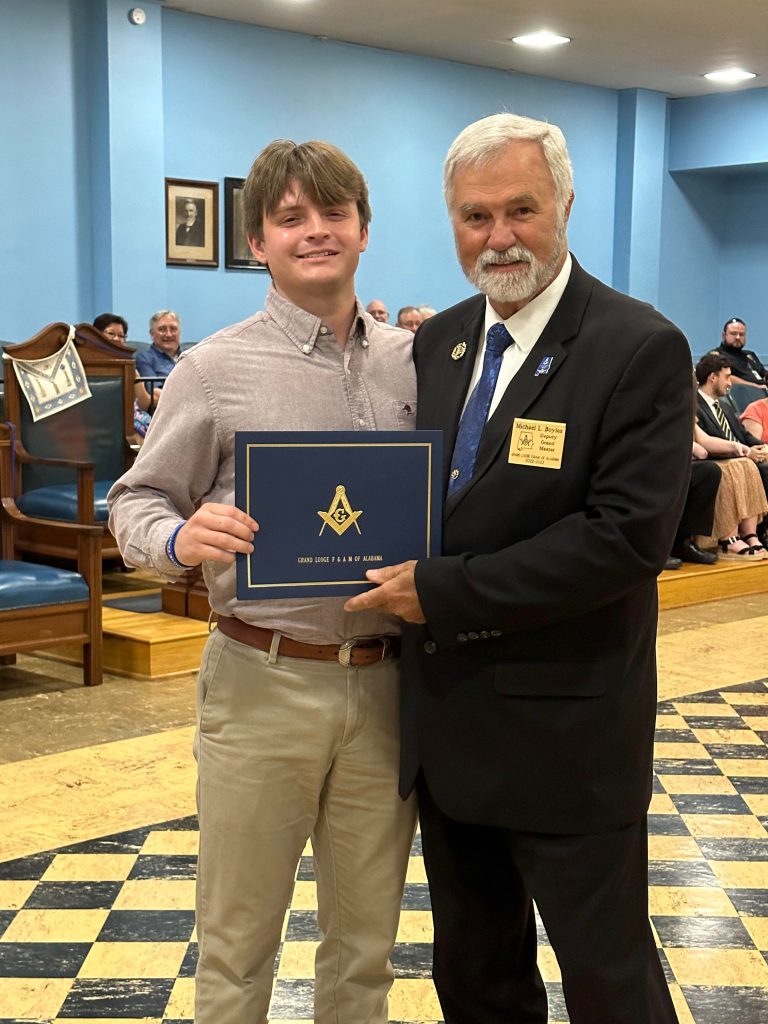
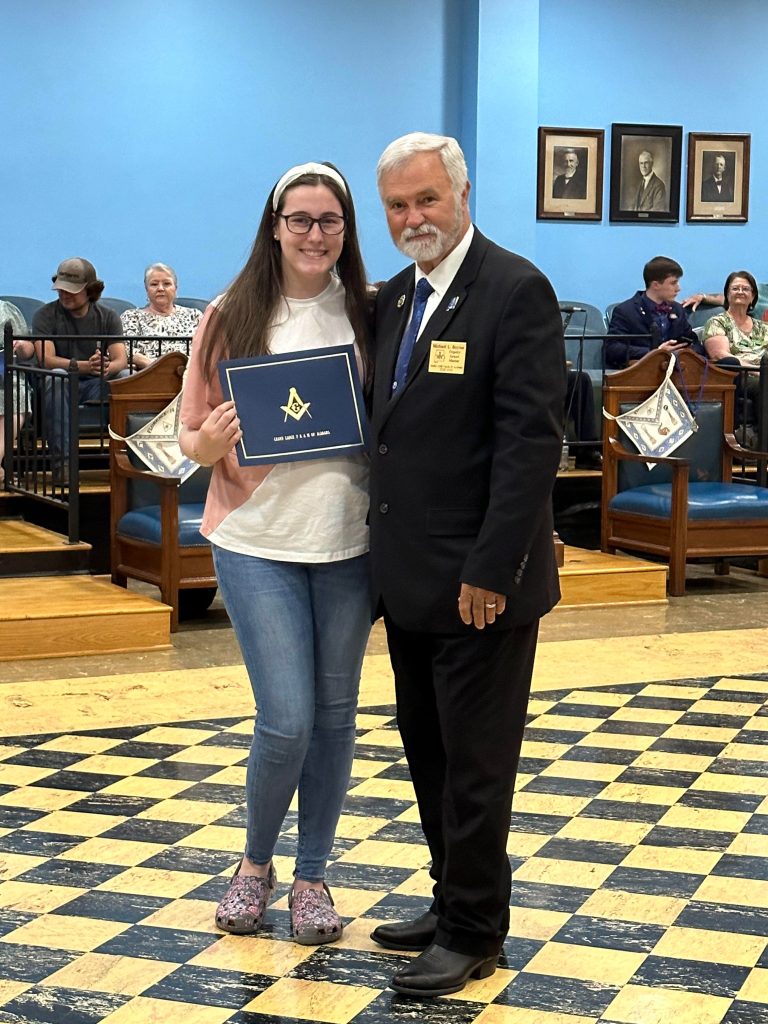
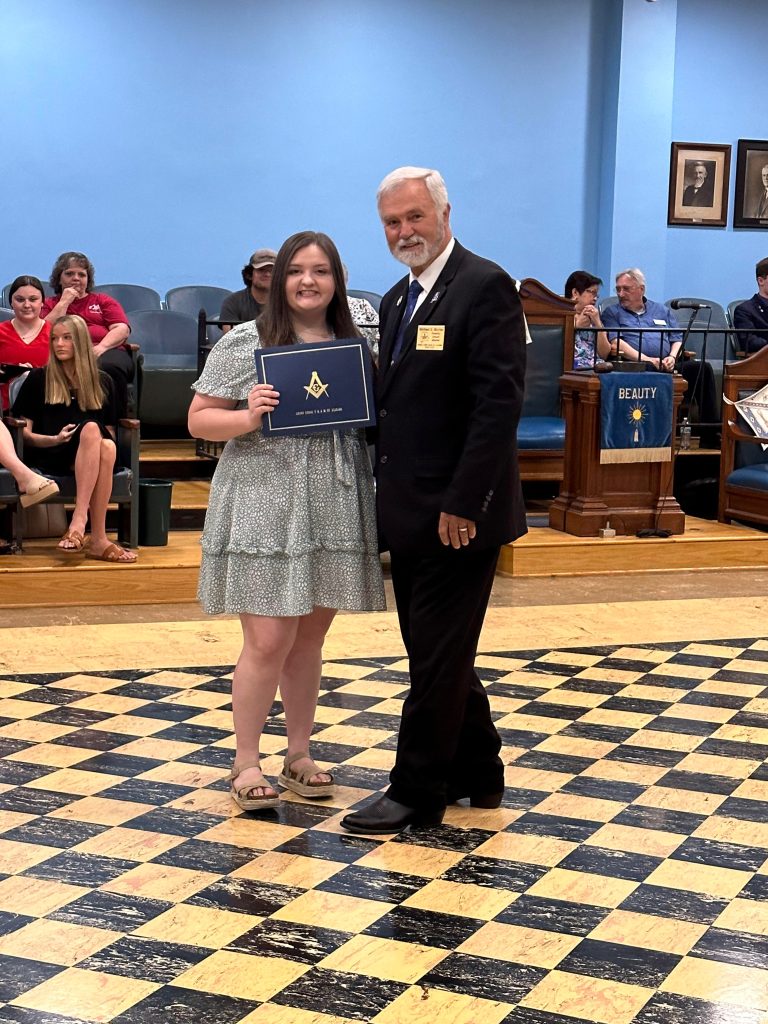
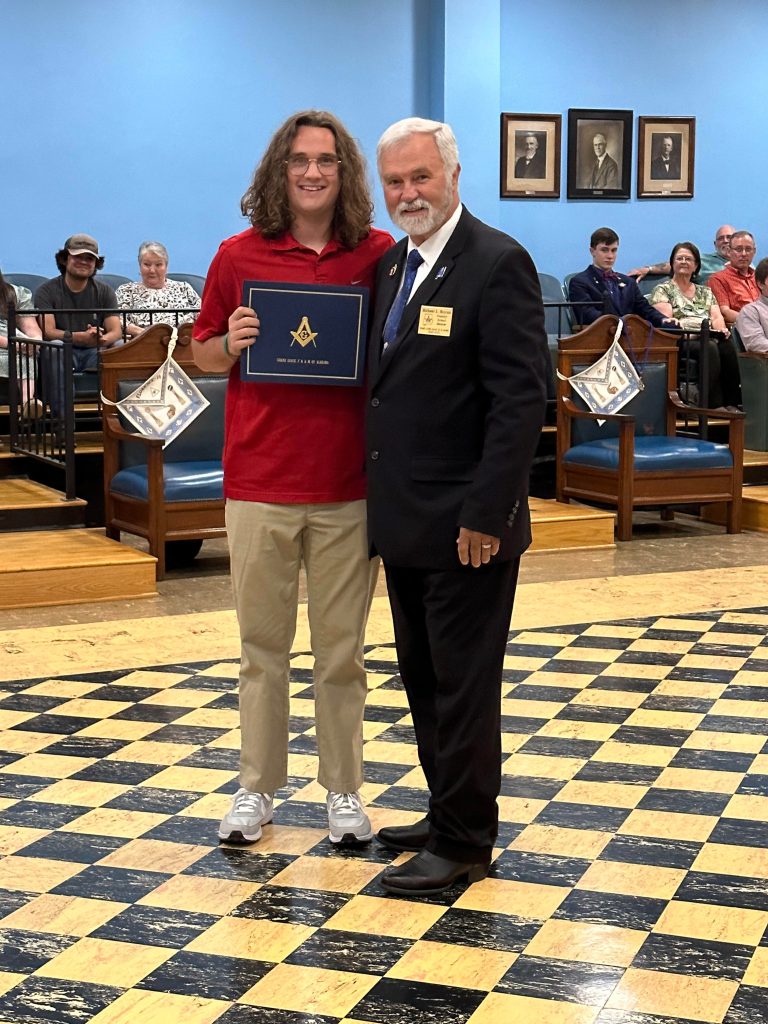
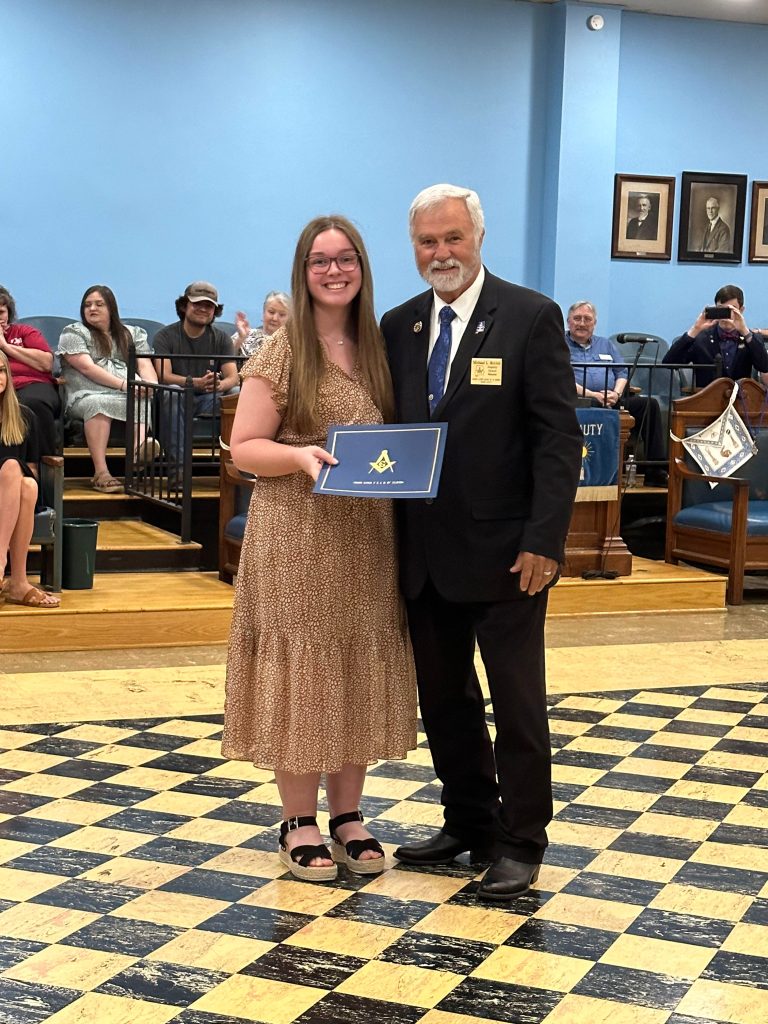
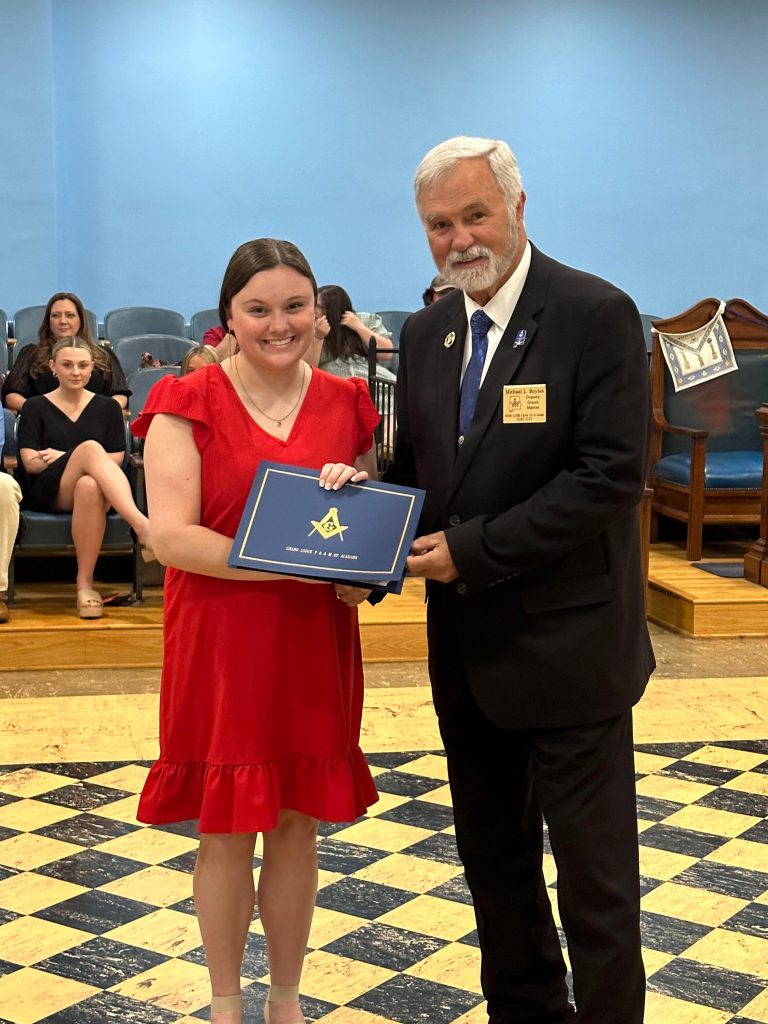
June 2023
Brethren All,
June is the month of sweet brides and happy times. The warmth of summer arrives and in the heart of Masons love and humility should arrive constantly. When times seem so harsh in our country and world, yet the caring of a brother mason is always in the forefront. How many times can one brother stand forth in honesty, humility, and with truth toward the Supreme Architect of the Universe (Our God).
When think of the sunrise on beauty, there is so much beauty in Masonry when it is performed correctly. Why tell a newly made brother, you had a great degree when it was performed with so many mistakes it is embarrassing. Truth is what separates a Mason apart from the community.
Today let us all shine as the June sun and bring the true riches of a Mason to this world that we may all stand in accordance with our rituals.
I love all my brethren.
Right Worshipful and Reverend
Ricky Kilgore, Grand Chaplain
May 2023
Brethren All,
As the month of April has slid by without much notice, the month of May is here. To all my brethren and with love to each of you I declare this to be a month of growth in Masonry. Each day we must realize brings us one day closer to meeting our LORD.
The visitations we had so far have brought us to many, many fine Masons we would never have met. The brotherly Love of Masonry is to be the same as hand in hand to each other. Our obligations are very distinctive. The strawberry winter we have just went through is to show us how our God has designed things to come.
People today want to join masonry because they have heard what a great peace it brings to men. One thing we should remember is that, they are joining us not the other way. Remember today quality is still better than quantity.
Let the light of the Great Lights shine through each of us to those less fortunate. In the name of the Great Architect of the Universe may you read this with Peace.
May God’s Healing come to you all.
Right Worshipful and Reverend
Ricky Kilgore, Grand Chaplain
March 2023
Brethren All,
The month of March is a month in which we all look forward to. This month bring us into our Spring season, which is at times brings bright and cheery. This month nice smile, friendly handshakes and brotherly love stands forth in our hearts.
The pain of this month is brought by one brother disrespecting another brother no matter what group you are in or whether you mean to or not.
Brethren who fish, hunt or play golf can find absolute joy this month. Especially to meet on the square and in meetings of the lodge. This is a time when conferences come greatly enjoyed by all Masons. Special meetings show brothers stand as men in aspects of masonry.
Today let us stand hand in hand as it was spoken of in one of our special reports. My Jesus bring joy to us all. God Bless and may your sins be forgiven.
Right Worshipful and Reverend,
Ricky Kilgore, Grand Chaplain

